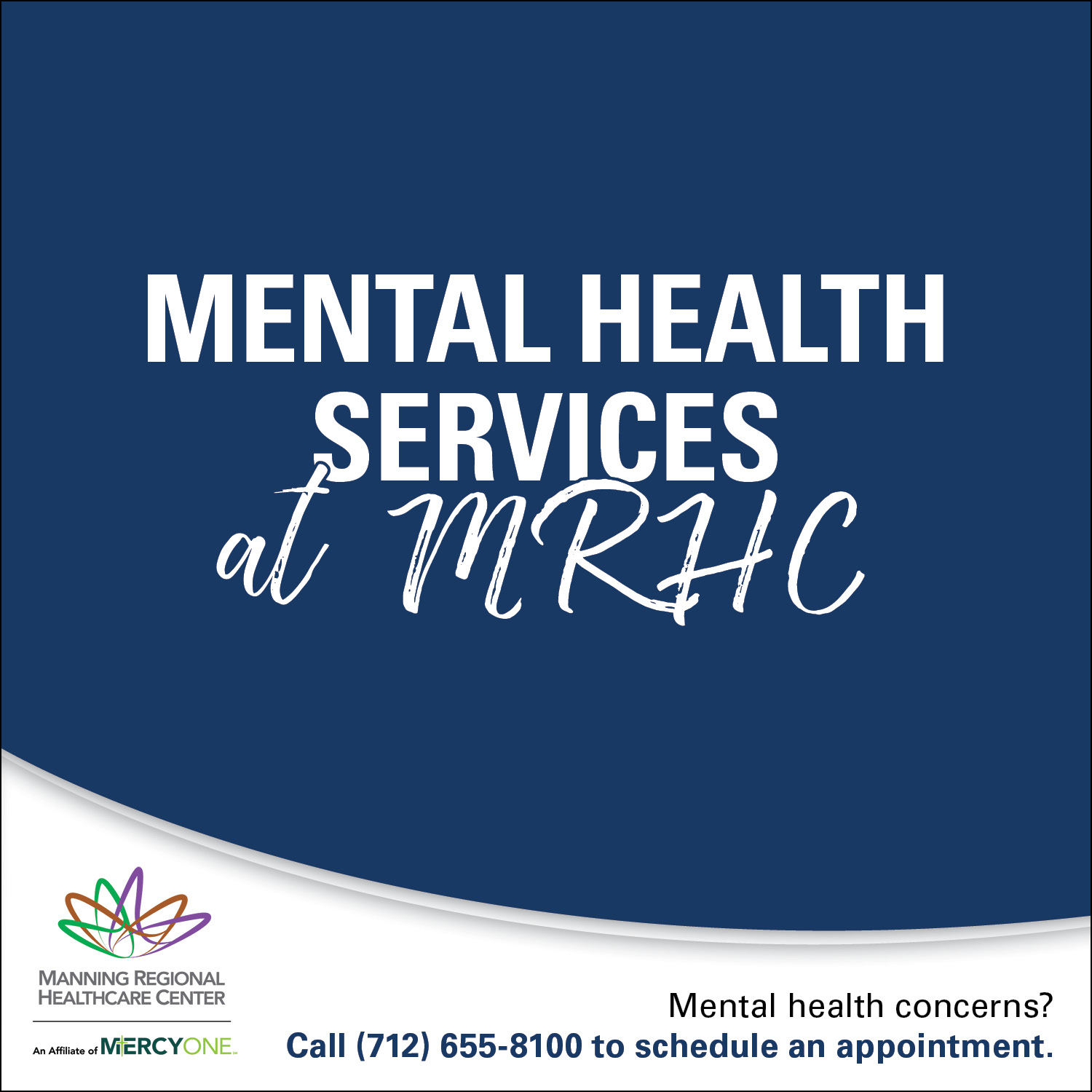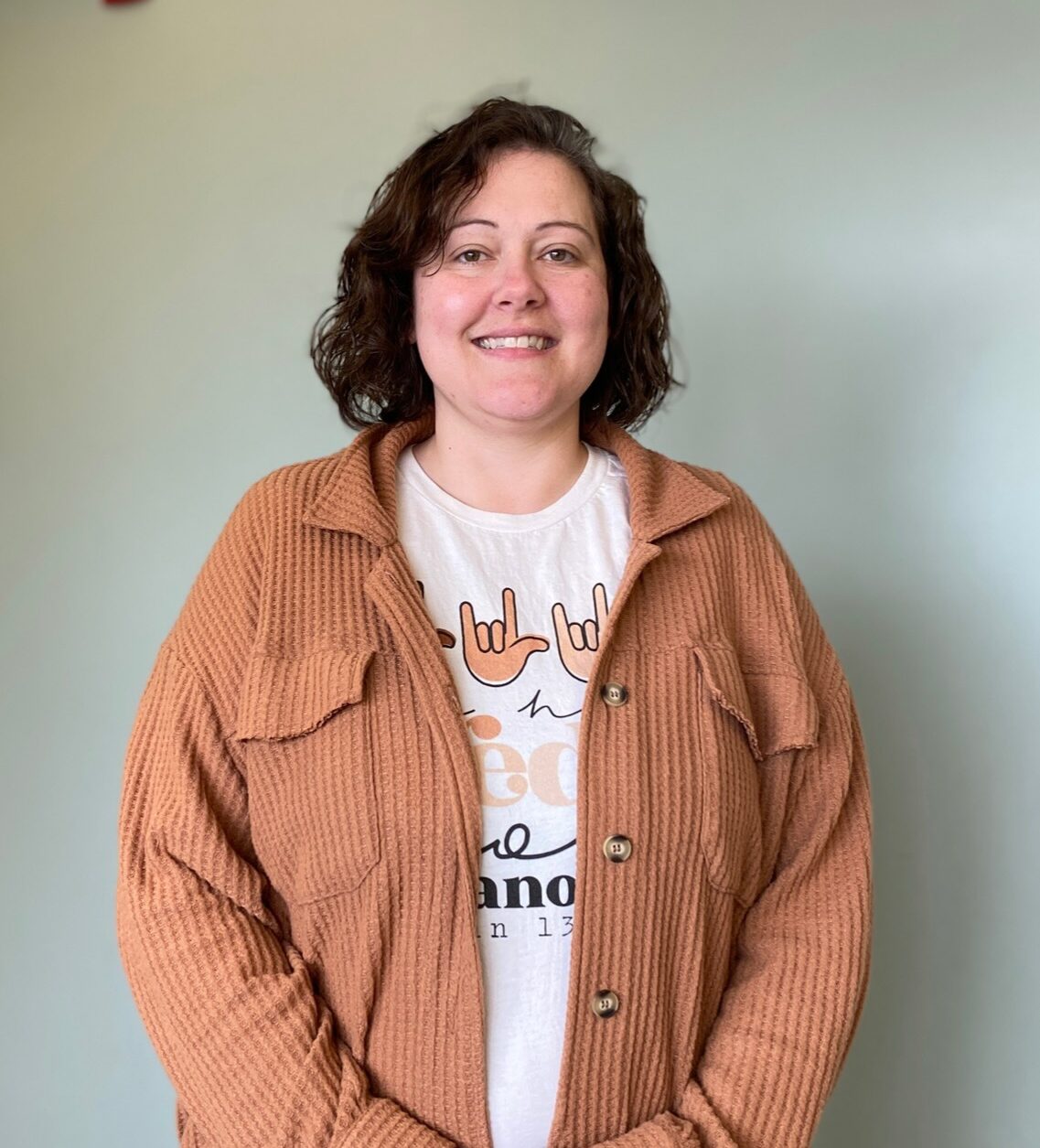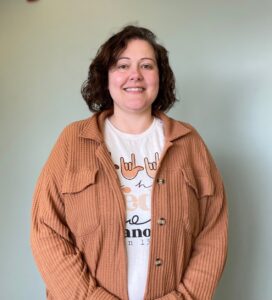“Based on the outcomes of our latest Community Health Needs Assessment (CHNA), mental health is one of the main concerns of our rural communities,” shared MRHC Education Coordinator, Julie Hodne, RN. “So, we are prioritizing mental health support, increasing available mental health resources, and sharing insight to better help people of all ages.”
Hollie Schechinger, a counselor at the Recovery Center at MRHC will be adding to her responsibilities in the coming weeks to serve as a full-time mental health counselor. Schechinger will begin seeing patients ages 12 and older beginning in June.
Mental health continues to affect many people regardless of their age, gender, medical history, life status, etc. and MRHC recognizes that a “one size fits all” approach to treatment does not work. MRHC strives to offer a variety of mental health services for different ages and needs.
According to the CDC, one in five people, including children, will experience a mental illness at some point in their life. With that in mind, it is important to be aware of common mental health warning signs.
Common Warning Signs in Children
- Ongoing behavior problems at school, home, or daycare
- Constant movement or hyperactivity
- Frequent and unexplainable temper tantrums, outbursts, or explosive emotional reactions
- Unusual fears/worries, thoughts, beliefs, feelings, or behaviors
- Having a hard time getting involved with age appropriate activities
- Difficulty concentrating, paying attention, or being organized for their age level
- Lack of interest in friends and avoiding or isolating from friends and family
- Negative moods for long periods of time
- Obsession on certain thoughts, activities, or actions
- Lack of energy even when well rested
- Difficulty with sleeping
- Frequent physical complaints with no obvious cause
- Sad or hopeless feeling with no reason
- Self-harm or talk of self-injury or suicide
- Persistent nightmares or visual or audio hallucinations
- Eating problems (too little or too much)
- Violence towards others, animals, or property
- Refusing to go to school and ongoing decline in school performance
- Risky or dangerous behaviors like sexually acting out, recklessness, or running away
“Depending on the severity of their behaviors, we recommend that parents call to schedule a mental health evaluation with a mental health provider,” said Schechinger, LMSW. “If a child is making comments of self-harm or suicide, take them to the nearest emergency room.”
If you notice some of these warning signs, the CDC recommends several strategies for helping children cope with mental health issues. Talk to them about and validate their feelings of stress or sadness, reassure their safety, let them know it is okay to feel upset, be a good role model, spend time together, and provide professional support if needed. It is also important to limit their social media exposure, provide fun and relaxing activities, and maintain regular routines.
While symptoms can be similar to children’s, warning signs in adults often involve:
- Decrease in enjoyment from and isolating from friends and family
- Significant decrease in school or work performance or resisting to attend
- Memory, attention, and concentration problems
- Large changes in energy levels, eating, and sleeping patterns
- Physical symptoms (headaches, stomachaches, backaches)
- Feeling hopeless, sad, anxious, or crying often
- Frequent aggression, disobedience, or lashing out verbally
- Neglect of personal hygiene
- Substance abuse
- Dangerous or illegal thrill-seeking behavior
- Being overly suspicious of others
- Visual or auditory hallucinations
“Some effective ways to help cope with depression, anxiety, and other mental health disorders include going for a walk, reading a book, calling a friend, taking a nap, playing with animals, exercising, spending time with family or friends, taking a shower, watching a favorite movie or TV show, eating a snack, and going out to eat with friends or family,” Schechinger recommended.
Schechinger goes on to advise that if these strategies are not helping, it’s important to see a mental health provider for an evaluation and to follow their recommendations for treatment.
“MRHC provides outpatient mental health support through a therapist, medication management, and substance abuse addiction services through the Recovery Center if needed,” Schechinger shared.
Substance Abuse and Mental Health
Mental illness and addiction can often go together. Individuals with mental health disorders are statistically proven to be at high risk for addiction and those struggling with addiction have a high risk for mental health disorders, especially depression and anxiety.
“Rarely do we treat someone who has an addiction that does not have at least one mental health diagnosis as well,” said Recovery Center Director, Taya Vonnahme, MSN, RN, ARNP, CADC. “These two iare very different diagnoses and have different treatments but are still associated with each other in various ways.”
Mental issues are sometimes signs of substance abuse as well. Psychological warning signs of drug abuse that can be seen as mental health issues are things such as changes in personality or attitude; sudden mood swings, irritability, or angry outbursts; and appearing fearful, anxious, or paranoid for no reason.
“Here at the Recovery Center, we have mental health therapists who come once a week to meet with clients. In addition to that, when I see clients, I help them address many of these issues from a medical standpoint,” Vonnahme said. “This is an area we are working to expand in the near future.”
Mental Health in Aging Individuals
Elderly individuals can also suffer from the effects of mental illness. Things such as more physical complaints, frequent ER visits, sleeping problems, low energy, cognitive issues, weight loss or gain, and isolation from family and friends can all result from an individual dealing with a mental health issue.
“Oftentimes, people attribute these changes as part of the aging process, but that’s not always necessarily the cause,” said Senior Life Solutions Program Director, Janet Brus, RN.
If you notice these things in a loved one, it is important to be aware of other red flags that may point to a mental health issue.
- Change in physical status – not eating, losing, or gaining weight, or eating junk food
- Increased irritability when normally very pleasant and easy going
- Previously independent with daily tasks and now relies on someone to get groceries, pay bills, shower, etc.
- Misplacing things
- Talking about feeling lonely and isolated
- An increase or start in using alcohol or other substances
- Poor medication compliance
For elderly individuals over the age of 65 who are struggling with depression or anxiety, the Senior Life Solutions program at MRHC offers group counseling sessions that have seen great success.
“People often find a common ground with each other as they have all been through some of the same life experiences and enjoy the support from each other,” shared Brus. “It also makes them get up, leave their home, and gives them a purpose. We all need a purpose – something to get up and do and look forward to each day. Without purpose, one would just stay in bed and no longer participate in life.”
Family members, physicians, or other health professionals can refer individuals to the Senior Life Solutions program. For those interested in learning more or signing up, call 712-655-8262.
If you need additional mental health information, education, or would like to discuss support, please schedule an appointment with your primary care physician by calling (712) 655-8100 to discuss treatment options. For those 65 and older, call Senior Life Solutions at (712) 655-8262. Or call the Manning Recovery Center at (712) 655-2300.


 Emmalee Bolin works as a counselor at the Recovery Center at MRHC and shares that her personal experience with addiction and recovery is what inspires her to help others.
Emmalee Bolin works as a counselor at the Recovery Center at MRHC and shares that her personal experience with addiction and recovery is what inspires her to help others.